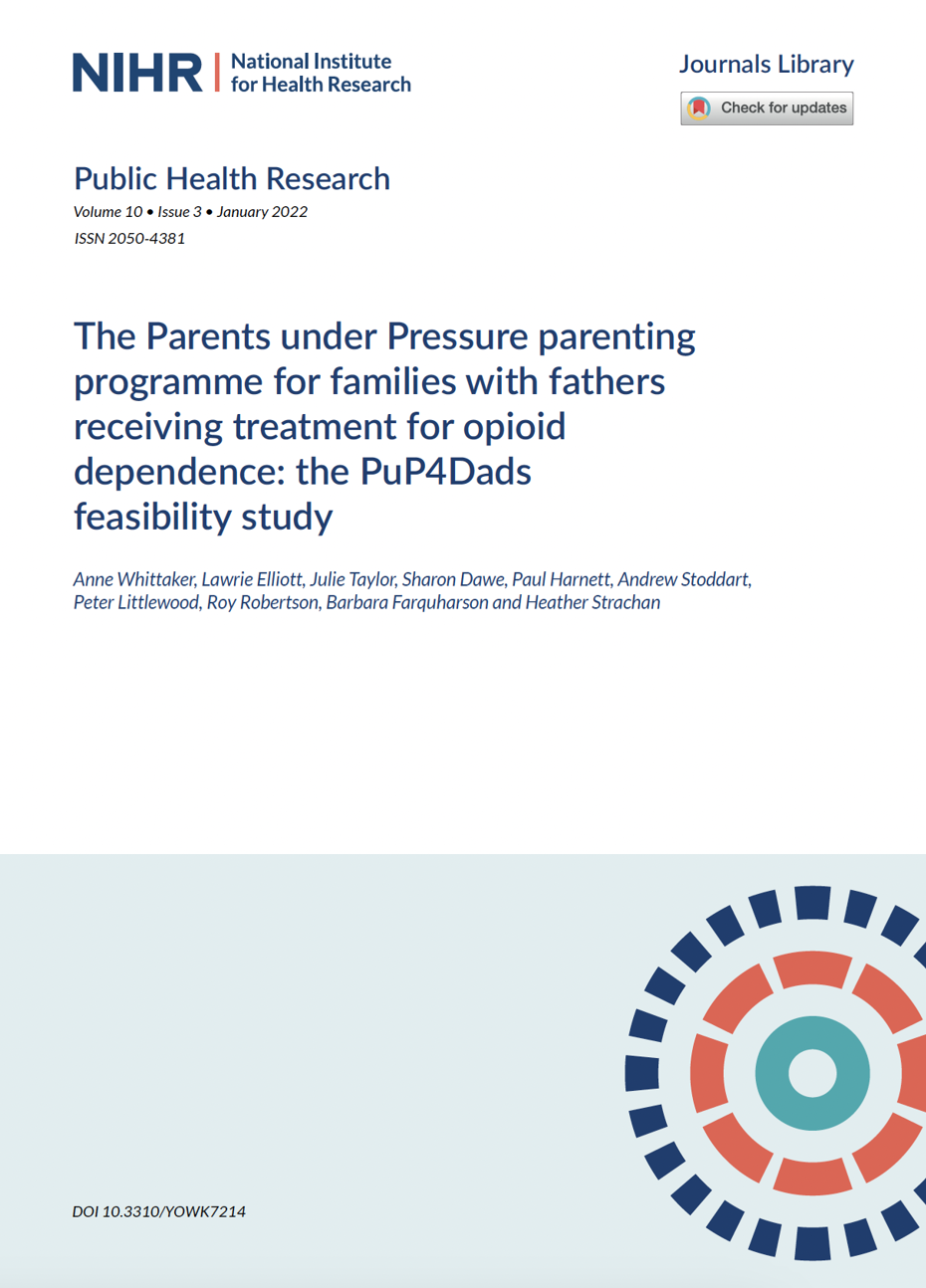The Final report of the NIHR PuP4Dads Report carried out in Scotland is now published. The feasibility study was lead by Prof. Anne Whittaker (Stirling University).
Parental drug misuse is closely associated with poor child development, child maltreatment, and a greater likelihood that children will develop substance misuse problems themselves. It is well known that fathers play an important role in child welfare and family functioning, and drug problems are far more prevalent in men than women. Failure to involve fathers in family services has been repeatedly highlighted in child abuse inquiries. However, efforts to involve fathers in parenting programmes remains a significant challenge, with services reporting low rates of engagement, especially in regard to fathers with complex needs.
The present focused on opioid-dependent fathers and their preschool aged children. It was a mixed methods feasibility study of the Parents under Pressure (PuP) programme that has been specifically designed to improve parental emotional regulation and quality of caregiving in order to reduce child abuse in drug-using families.
We enrolled 25 fathers (with at least one child aged 0–8 years) in the study. We trained staff to deliver PuP4Dads and 20 families started the programme. Parents were interviewed once before they started the programme and then again at around 6 and 12 months. Parents answered questions about the health and well-being of the whole family and spoke about their experiences of receiving the programme. We asked to video parents playing with their child at each visit and we gave parents a survey to complete on their use of services. Details of prescription drugs and the family’s social work records were obtained with the parent’s consent.
Fathers, mothers, professionals and services thought that PuP4Dads was a positive, supportive and helpful programme. The programme was flexible and could be tailored to the needs of each family. Most fathers engaged well with the programme and would recommend PuP4Dads to other drug-using fathers. The time taken to complete PuP4Dads varied between families. Most study questions were answered well and around half of the fathers stayed in the study to the end.
Professionals who attended the end-of-study ‘expert event’ thought that PuP4Dads could address the unmet needs of fathers and their families, and that this was a policy priority.
Our results show that a bigger study of PuP4Dads is possible and can be recommended for the future.


